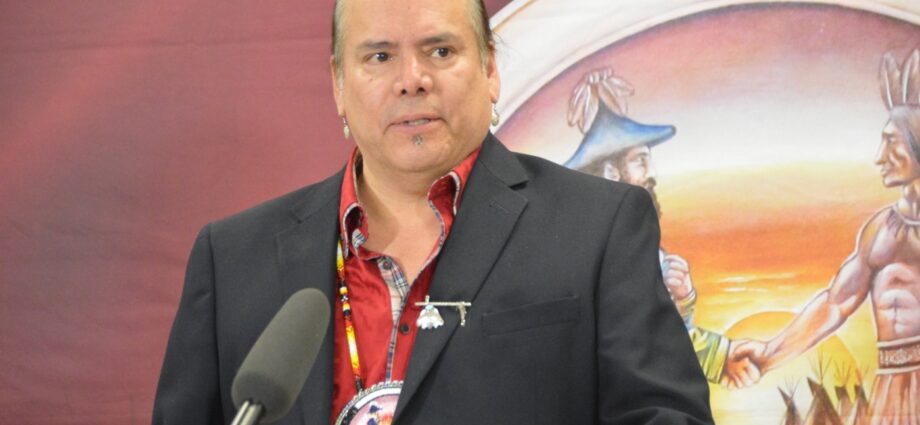
By Dave Baxter, Local Journalism Initiative Reporter, Winnipeg Sun
February 13, 2023
Just days after Canadian premiers met with the prime minister, and billions of dollars in federal health care funding was pledged, Indigenous leaders in Manitoba say they are still upset they were not invited to that meeting, and are now concerned about how that money will be spent.
A Feb. 7 meeting in Ottawa saw Canada’s 13 premiers meet face to face with Prime Minister Justin Trudeau to discuss health care and specifically health care funding, as provinces and territories were seeking a bigger cut of the annual Canada Health Transfer (CHT).
After the meeting, the federal government announced its offer to flow $196 billion over the next 10 years from the CHT to provinces and territories, and that would include $46.2 billion in new spending on top of funds already budgeted. The offer still needs to be accepted and premiers are expected to meet for a second round of talks on Monday with the prime minister.
Several First Nations leaders in Manitoba had been asking for a seat at the table at last Tuesday’s meeting, but none were invited, something that has continued to anger leaders, including Assembly of Manitoba Chiefs Grand Chief Cathy Merrick, Southern Chiefs’ Organization Grand Chief Jerry Daniels, and Manitoba Keewatinowi Okimakanak Grand Chief Garrison Settee, who all publicly criticized their exclusion leading up to the meeting.
Settee released a statement late Thursday continuing that criticism, as leaders now prepare to meet for the second time on Monday.
“The CHT is a paternalistic and colonial model where First Nations rights-holders are excluded from any negotiations or decision-making processes,” Settee said.
He said he and others are also now questioning how those billions of dollars will be spent, and he asked that First Nations leadership be directly involved in those decisions.
“First Nation citizens continue to experience oppression, racism and poor health outcomes resulting from the exclusion from being able to negotiate at the decision-making tables,” Settee said.
“Although a seat was not allocated, this announcement should not derogate the Nation-to-Nation relationship. Moving forward the partnership between First Nations and governments must acknowledge First Nation sovereignty and recognition as rights-holders within Canada.”
Last month, the federal government defended their decisions regarding who was and was not invited to the Tuesday meeting, and claimed they have been working with and communicating with First Nations leaders on health care issues.
“Our government continues to engage with Indigenous communities across the country regularly, whether through consultations on Indigenous data sovereignty, various FPTI meetings, anti-Indigenous racism in the health care system, and other initiatives to ensure we are working collaboratively and in partnership together,” the spokesperson said.
“We have also invested millions of dollars into healthcare initiatives that are culturally-sensitive and Indigenous-led at the community level, and we will continue these efforts.”
Subscribe to our newsletter.
— Dave Baxter is a Local Journalism Initiative reporter who works out of the Winnipeg Sun. The Local Journalism Initiative is funded by the Government of Canada.


